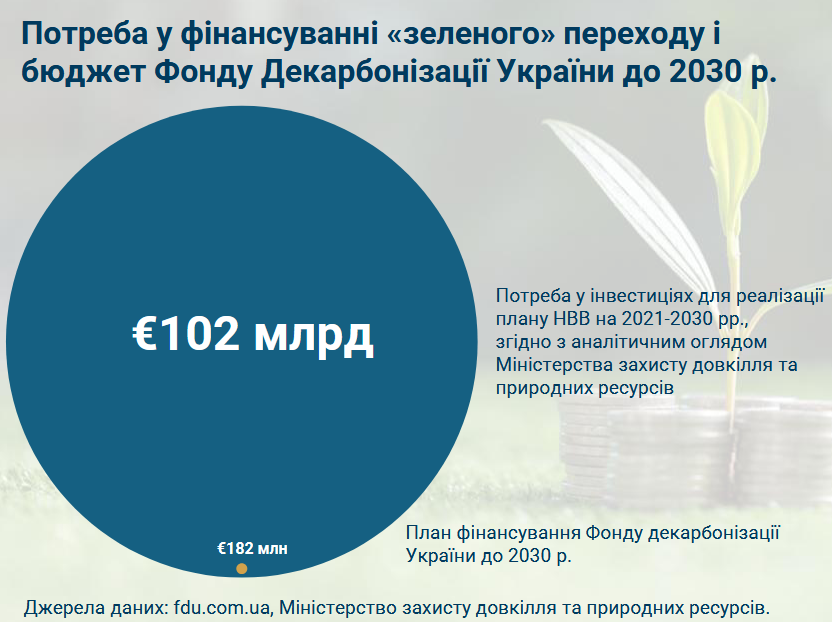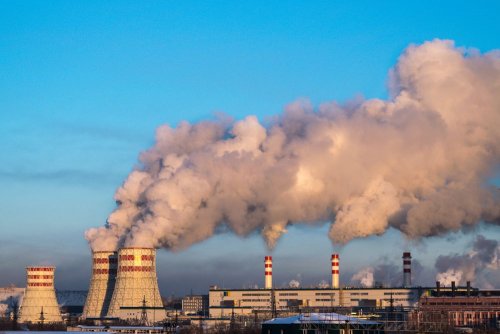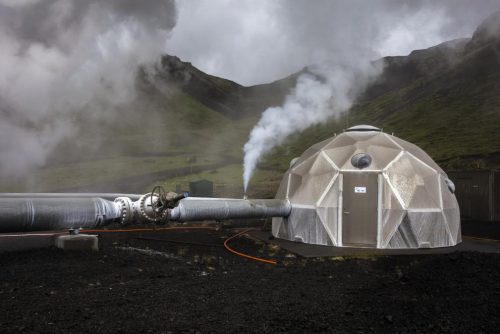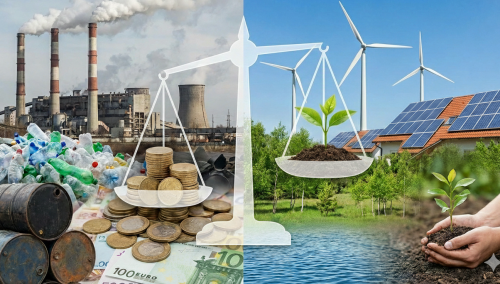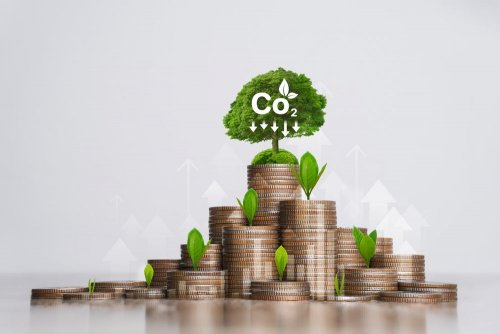In the context of a full-scale war, Ukraine is unable to accumulate the €102 billion needed to decarbonize its industry on its own, and therefore vital to access European financial instruments to implement a "green" transition.
This conclusion was made by GMK Center experts in their study Carbon Pricing and Decarbonization Financing in Ukraine and the EU.
Transition should be fair
The experts reminded that Ukraine has made ambitious commitments under both the Paris Climate Agreement and the European integration agreement. The updated draft of Ukraine's Nationally Determined Contributions to the Paris Agreement, presented in June, envisages a 68-73% reduction in greenhouse gas emissions from 1990 levels by 2035.
At the same time, the EU is discussing a 66.25%-72.50% reduction in CO2 emissions by the same timeframe.
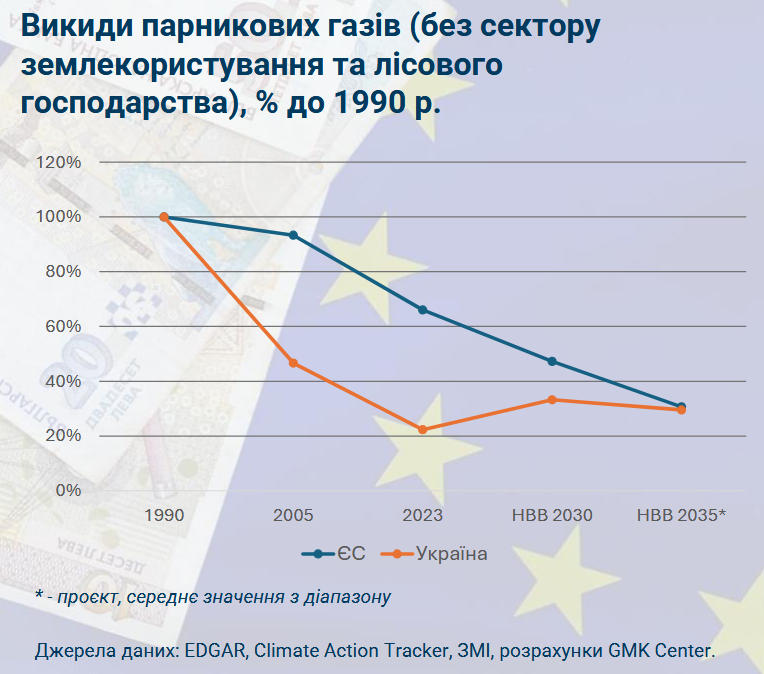
Infographic: gmk.center.
"That is, the climate ambitions of Ukraine and the EU are already identical. However, the economic conditions in Ukraine and the EU are significantly different," the experts emphasized.
Since Ukraine has committed to implementing European environmental standards in its legislation, GMK Center experts believe it is only fair that Ukraine, following the same rules and obligations as European countries, should have similar access to funding for decarbonization measures.
"Ukrainian companies should be given the same opportunities as European companies to ensure a level playing field," the experts believe.
Financing needs and real opportunities
To demonstrate the striking gap between the amount of capital required for decarbonization and the financial resources available in Ukraine, GMK Center provides the following diagram:
Infographic: gmk.center.
This small, inconspicuous yellow dot at the bottom is the planned financing of the Decarbonization Fund. It should be reminded that this is the only specialized fund in Ukraine that provides enterprises with funds for the "green" transition.
According to an analysis conducted by experts, this government agency is not able to finance decarbonization projects for large industrial enterprises. GMK Center cites two main reasons for this:
-
The fund will be able to cover only 0.17% of the investment needs by 2030 to meet NDC-2 targets;
-
currently, the maximum loan amount the Fund can provide is 90 million UAH, but this is catastrophically insufficient to implement decarbonisation projects at large industrial enterprises. Experts cite the following example: the cost of a single decarbonisation project for steel producers starts at €1 billion.
“Even the launch of an emissions trading system (ETS) in Ukraine will not solve the issue of sufficient funding for decarbonization, as the generated funds will be small compared to the needs of enterprises,” specialists say.
GMK Center is convinced that a successful "green" transition in Ukraine is possible only with responsible tax and tariff policies, as well as access to European climate project financing infrastructure.
It is impossible to fight and decarbonize industry at the same time
Experts reminded that Ukraine continues to suffer from the negative effects of the war, as the enemy continues to destroy production facilities and infrastructure. This has already led to a deterioration in the trade balance: in the first 8 months of this year, our country imported $30.4 billion more goods and services than it exported, which means an outflow of foreign currency from the country.
GMK Center experts also provided an eloquent chart that demonstrates the striking difference in the share of GDP spent on military spending in Ukraine and European countries:
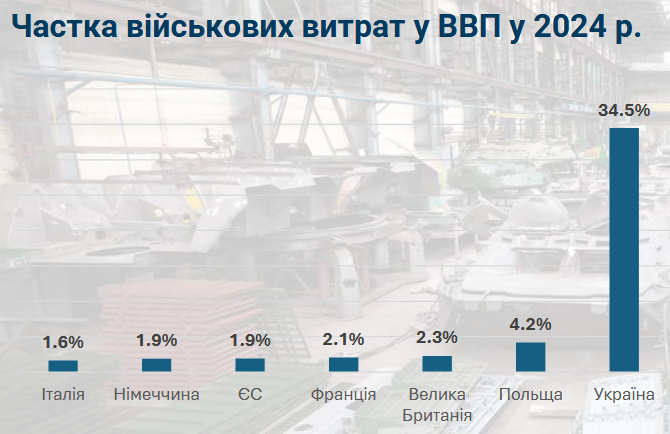
Infographic: gmk.center.
For example, defense spending in Ukraine is more than 18 times higher than in the EU as a whole.
GMK Center emphasized that even after the current hot phase of the war is over, there will be a threat of repeated aggression, so Ukraine will have to maintain a high share of military spending in GDP for a long time to build its military potential. Accordingly, our country will have to invest the funds that could be used to decarbonize the industry in the defense sector.
A mutually beneficial step for partners
Experts are convinced that the EU should be interested in promoting the decarbonization of Ukrainian industry. There are at least 4 compelling reasons for this:
-
Access to European decarbonization funds will help eliminate the technological gap between Ukraine and the EU and facilitate the integration of Ukrainian enterprises into European value chains;
-
If Ukraine joins the EU, it will make a significant contribution to achieving the bloc’s climate goals, since it has already reduced CO2 emissions much more than the EU has;
-
Access to European funds will allow Ukraine to strengthen its economy without cutting defense spending-in this case, the integration will be mutually beneficial and enable synergy;
-
Since Ukraine will purchase European decarbonization technologies, this will provide an additional stimulus for the EU economy.
Earlier, EcoPolitic reported that the "green" transition of the Ukrainian metallurgy would cost $12 billion.


